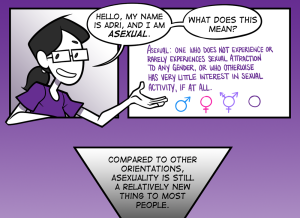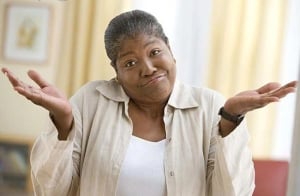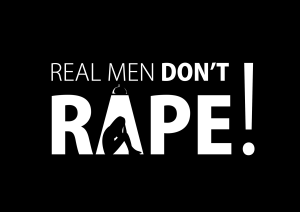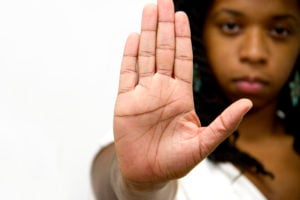
A couple sits on a bed, one person in the foreground staring off pensively. Source: Get A News
(Content Warning: Sexual Violence and Abuse)
Some of the most important lessons I’ve learned in life came through sports. They taught me hard work, commitment, and teamwork. They also taught me some of my most foundational lessons about masculinity and sex.
Not all of these messages were problematic and harmful. I often had coaches talk to me in positive (though sometimes paternalistic) ways about “respecting women.” But looking back, most of the messages I received about sex and my masculinity’s role in sex were quite horrifying.
Perhaps one of the most terrifying messages that I received came from an older soccer player named Dave when I was in tenth grade. One day, he was bragging to me about his sexual relationship with his girlfriend, a girl widely recognized as “hot” and “popular.”
In the midst of his braggadocio, he mentioned wanting to perform an incredibly violent sexual act that would violate her consent and would likely lead to serious injury.
He said he was only joking, and I laughed along, but it didn’t sit right with me. No matter how uncomfortable it made me, though, I didn’t dare challenge the “joke.”
After all, to do so would not only have challenged a man I was supposed to look up to, but it might have led to me being further ostracized for being “gay” (because apparently men are gay if they stand up to violence against women, and being gay was the “worst possible thing” I could have been in high school).
To this day, I’m ashamed that I never said anything, but I simply didn’t know how. I was a young man lacking in confidence, and I felt like it was “normal” that we were talking about women in this way.
Though some might write this story off as adolescent immaturity, this story speaks to a wider problem of patriarchal masculinity and how we as men are taught to understand sex and sexuality.
Feminism vs. Patriarchy
For generations now, feminism in its many iterations has done an amazing job of pointing out the terrible impacts of patriarchal masculinity. And, increasingly, feminists have focused on how patriarchy hurts people of all genders.
With the rise of the Internet as a dominant force in so many people’s lives, though, the resistance to feminism has only grown louder and stronger.
The power of the Internet for organizing Men’s Rights Activists, Pick Up Artists, and other anti-feminist groups has meant a surge in numbers of those who see feminism as “anti-male” or who despise the ways that feminism subverts patriarchal masculinity.
And ironically, these groups prey on men who feel hurt, who feel insecure, who feel entitled to sex, but who struggle socially and can’t find fulfilling relationships.
MRAs and PUAs tell insecure men that the problem is feminism, not patriarchy, and in doing so, fuel a particularly violent online (and offline) misogyny.
Yet the hurt and frustration these men face when it comes to sexuality is almost always directly tied to the ways in which patriarchal masculinity distorts male sexuality — which is a battle that feminism fights.
In her book The Will to Change: Men, Masculinity, and Love, bell hooks describes patriarchy as “the single most life-threatening social disease assaulting the male body and spirit in our nation.”
If we are ever going to engage men more fully in dismantling patriarchy and ending misogyny, we need more men to understand how the messages we receive about sex hurt more than women. These messages hurt us in myriad ways, too.
Thus, though I could likely unpack just about every message about sex that we receive, I want to analyze five of the most prominent messages men are taught about our sexuality.
1. ‘Sow Your Wild Oats’
This one is also known as “View sex as a conquest, and have sex with as many partners as you possibly can.”
Somewhere in our early twenties, my friend reached out to his dad for some advice about women and relationships. His dad told him that his twenties were not a time to be “tied down” and that he should “sow his wild oats.” Considering that my friend was seeking advice about whether to invest more seriously in a relationship with a woman, the message was clear.
From a very early age, we, as men, get the message from media and from other men that our role in sex is conqueror. I saw in in the way that Dave bragged about his sexual conquest with his “hot” and “popular” girlfriend, and we got the message in the talk with my buddy’s dad.
By feeling pressure to live up to the “sow your wild oats” message, we end up viewing partners as disposable. This obviously hurts our partners, but it also ensures that we never form loving and/or accountable bonds of attachment unless we forsake this messaging!
After all, whether we’re talking about a one-night stand or a long-term relationship, connection (and thus good sex and healthy relationships) is driven by investment, love, and care. This is not to say that all sex needs to happen in the context of love, but we need to invest in connection rather than disconnection to ensure both our partners and we are fulfilled.
2. ‘Always Be in Control’
I’m not sure where exactly it came from, but somewhere along the way, I received the message that I always need to be in control sexually. Sure, it can be “hot” for a woman (because I never received any messaging about what sex with anyone but a woman could or should be) to take control from time to time, but that message was the exception to the rule.
And I don’t think I’m alone.
There’s a reason that in dominant masculine cultures, it’s seen as wildly subversive for a man to be a “bottom” or “submissive” in sex with other men or in BDSM. And there’s a reason that these men are referred to as the “b*tch.”
But releasing control allows us to build accountable and trusting partnerships, as trust cannot live in a relationship characterized by control over another person.
Plus, relationships where one person is always in control sexually are not only boring, but they can stifle our full sexual expression! Relinquishing control allows us to experience things that might bring tremendous fulfillment and pleasure that we otherwise would never have considered!
3. ‘Value Hotness (Traditional Measures of Physical Attractiveness) Above Everything.’
When I watched the video that the UCSB shooter made just before going on his violent rampage, I noticed a particularly disturbing trend: Much of his ramblings about women rejecting him focused on women he deemed “hot” and non-deserving men having sexual access to these women.
And it got me thinking about the ways that I have been taught to value particular types of beauty in my relationships with women.
Considering my earliest sexual experiences were with mainstream pornography, my understanding of sex and sexuality was cemented with a pretty strict construction of beauty. Outside of that, nearly every message I’ve received from other men and from the media point to one thing: Unless a woman is “hot,” she’s not worth my time.
And to this day, this conditioning impacts me both consciously and subconsciously in ways that I have to check and reflect upon. I find myself engaging more intently in a conversation with a woman who is stereotypically “attractive,” and I find myself remembering the names of women I find attractive far more easily than those I do not.
The bizarre part of these tendencies is that they don’t necessarily have anything to do with sex! I am happily in a committed and fulfilling relationship where I’m not looking for sexual partners, yet I still find myself valuing women I find most attractive more than those I don’t.
How does this impact my relationships with the women in my life?
What relationships — sexual and romantic or otherwise — are we closing off because of how we’ve been taught to value physical beauty above all else?
The point is that when we value women as sexual objects, we not only hurt women, but we hurt ourselves in the ways we lose out on friendships, romantic partnerships, fantastic sexual connections, or any other relationships with people who exist outside of a tiny standard of beauty.
When we decolonize our understanding of beauty from patriarchal norms, we open ourselves to a myriad of beautiful human connections with people of all genders.
4. ‘If She Doesn’t Stop You, You’re Good to Go!’
I had a lot of awkward sex talks with my dad. I guess he wanted to make sure I got the message about condoms and pregnancy and STIs.
Aside from any mention of non-heterosexual sex, looking back on these talks, I notice one glaringly absent topic: consent. In none of these awkward talks during long car trips was consent even mentioned, let alone explored and discussed with nuance and complexity.
This absence reinforced another aspect of sexuality that is “normal” within patriarchal masculinity: “Consent means go until they say stop.” Nowhere was that actually explicitly said, yet every model in the media where much of my understanding of how sexuality would look demonstrated anything different.
And so long as our model for consent relies on the negative, on a partner expressing discontent to keep us from moving forward, we ensure two things.
First, we ensure that we run tremendous risk of hurting our partners by violating their boundaries of consent, and if our partners have received similar messaging, they run the same risk of hurting us and violating our boundaries.
Second, we ensure that overt communication during sex is the exception rather than the rule, and this message means that we don’t have the best sex we could possibly have. A simple rule for good sex is that the more clearly everyone communicates, the better the sex will be.
5. This All Culminates in One Thing: Male Entitlement to Sex
All of this messaging together serves to teach men that we are entitled to sex and to other people’s bodies. And this entitlement hurts everyone.
There is only one outcome for this entitlement: violence.
Of course, #notallmen end up overtly expressing this learned entitlement through violence, but we all get the same messaging, and there are countless ways for us to act on our sexual entitlement by hurting others.
So how does this entitlement show up in the form of violence?
The most extreme form of this violence shows up when men murder out of this entitlement, as we saw in a sensationalized way with the Isla Vista killings and as we see every single day when at least three men kill their intimate partners.
This violence appears in the form of relationship violence, most recently in the public eye because of Ray Rice’s violence against Janay Palmer, and with at least two million men per year beating their intimate partners.
This violence shows up in sexual violence, where, though it is hard to truly study perpetrators of sexual violence, the vast majority of perpetrators of sexual violence are men (yes really, MRAs).
This violence shows up in street harassment, where the vast majority of street harassment is committed by men.
Sadly, I could go on and on with this list, but the common denominator is entitlement that is intimately woven into patriarchal masculinity.
So What Do We Do?
Knowing that patriarchal masculinity distorts male sexuality in ways that hurts people of all genders, we have to find ways to interrupt the cycles of male socialization as we know them.
We need learn from men like those at A Call to Men who are willing to raise boys differently, offering a more inclusive and non-violent masculinity. We have to have the courage to teach our boys that what it means to be a man is to be gentle, to be loving, to be kind, and to see the full humanity in all people.
We have to take a page from the book of The Representation Project who are pushing back against the ways our genders are constructed and portrayed in the media.
We have to push for public policy that holds everyone, particularly men, accountable to healthy and nonviolent relationships.
And we, as men, need to do more to call in other men to considering a new masculinity. When we hear our friends spout some MRA bullshit, we need to call them out and call them in. When we hear men talk in objectifying ways about other people’s bodies, we need to call them out and call them in.
And we need to build relationships with other men that are built upon non-violence, love, accountability, and transformative (rather than patriarchal) masculinity.
Because if we don’t, we all suffer.
[do_widget id=”text-101″]
Jamie Utt is a Contributing Writer at Everyday Feminism. He is the Founder and Director of Education at CivilSchools, a comprehensive bullying prevention program, a diversity and inclusion consultant, and sexual violence prevention educator based in Minneapolis, MN. He lives with his loving partner and his funtastic dog. He blogs weekly at Change from Within. Learn more about his work at his website here and follow him on Twitter @utt_jamie. Read his articles here and book him for speaking engagements here.
Search our 3000+ articles!
Read our articles about:
Our online racial justice training
Used by hundreds of universities, non-profits, and businesses.
Click to learn more




















